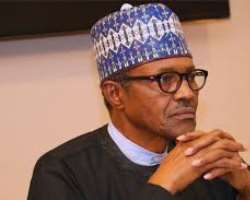President Buhari: Time to walk the talk

Whenever the news of the activities of Boko Haram surface what usually comes to mind is the promises made by President Mohammed Buhari on security, economy and other areas of national importance in 2015 and subsequent assurances that followed since the commencement of next level agenda.
On 9th February, 2020, the Boko Haram terrorist attacked Auno village, a gateway village to Maiduguri, Borno State Capital and killed over 30 people, adopted children and women with a 'bye-bye message" of setting ablaze more than 18 vichencles.
Less than 12 hours, President Buhari at the African Union (AU) summit in Addis Ababa, Ethopia, promised to secure the release of all the abductees of the Boko Harram including Leah Shuaribu, now the wife of Boko harram with a kid back to her parents while assuring Nigerians that the days of the Boko Harram are numbered in Nigeria, as usual.
Meanwhile, few hours before the Boko Haram attacked Auno village on 9th February, the Northern Elder Forum (NEF) while demanding a thorough overhauling of the leadership of the nation's security and public safety agencies, had passed a vote of no confidence in President Buhari on the ground that he lacks the capacity and the competency to fight insecurity and poverty in the country.
As expected, Mr Femi Adesina, Special Adverser to the president on media and publicity described the platform as a quasi-organization spearheaded by a General without troop who has being the trumpeter of opposition even before the 2019 general election.
However, whether the forum is a 'one man show' or a conglomeration of people dancing to the tune of opposition or not, the reality on ground in Nigeria today suggests that president Buhari has to move from the world of promises to the world of fulfilment, especially in the areas of economy, security and other promises made before coming or after coming to power in 2015.
Apart from NEF, the Christian Association of Nigeria (CAN) while reacting to the alleged killings of Christians in the country has also raised the issue of insecurity in the country. The same thing can be deduced in the statement issued by the Nigerian Supreme Council for Islamic Affairs (NSCIA) while condemning the christianization of killings by CAN.
Meanwhile, President Buhari in 2015, specifically promised to put an end to the activities of Boko Harram in the North East and return Nigeria to a state where Nigerians can sleep with their two eyes closed irrespective of their location before the expiration of his first term in office. Though, the president is now using his second term in office fighting the more formidable one.
Since 2009, the Boko Haram has continue to change its mode of operation. The most significant one was the division of labour perfected under this administration when another arm of Boko Haram with a name-code Islamic State's West Africa Province (ISWAP) and the unannounced multiplicity and multidimensional mobile Boko Haram operating toward the southern part of the country informed of banditry, herders, among others were formed.
For instance, while the Boko Haram continues to rain terror on the dwellers of the North East, the ISWAP continue to attack the military formation and the border frontlines between Nigeria and her neighboring countries with sophisticated weapons collected from their counterpart in Libya and the middle East.
At the same time, the killer herdsmen, banditry and other Boko Haram related mobile terrorists continue to operate in the North West, North Central, and in some instances transformed to kidnappers in the South East, South West and South South region of Nigeria with a goal to install fear in the minds of Nigerians.
With the activities of these groups, many people have lost hope in seeing a new Nigeria different from the one in place before the era of change. While some still believe that all will be well which is the prayer of a patriotic Nigeria.
But at the same time, it will be out place to be using the same method or be operating in atmosphere clouded with poverty, unemployment, illiteracy among others as it now in Nigeria and be expecting different result.
On 28th January, the World Bank reported that 87 percent of the poor people in Nigeria live in the North while, the World Poverty Clock stated in August, 2019 that 91.16 millions Nigerians are living in an extreme poverty. This is not to talk of the children out of school and the unguided Almajeris ready to become the leaders of tomorrow in the Boko Haram empire.
This is complemented by the rising figure of the unemployed and underemployed graduates wandering the street.
These are part of the factors sustaining the growth of Boko Haram in the country. Infact, the numbers of Boko Haram that the Nigerian Military claimed to have killed since 2009 till date is enough for the Boko Harram to die a natural death if no replacement.
Though, the war against terrorism is one of the difficult war to fight because of the gorilla method they always use. But at the same time, the monsters would have gone to the dustbin of history if president Buhari had walked all his talks at the election campaigns and in most of his reactions to the activities of the terrorist.
Femi Oluwasanmi is a Public Affairs Analyst, writes from Ibafo, Ogun State.
